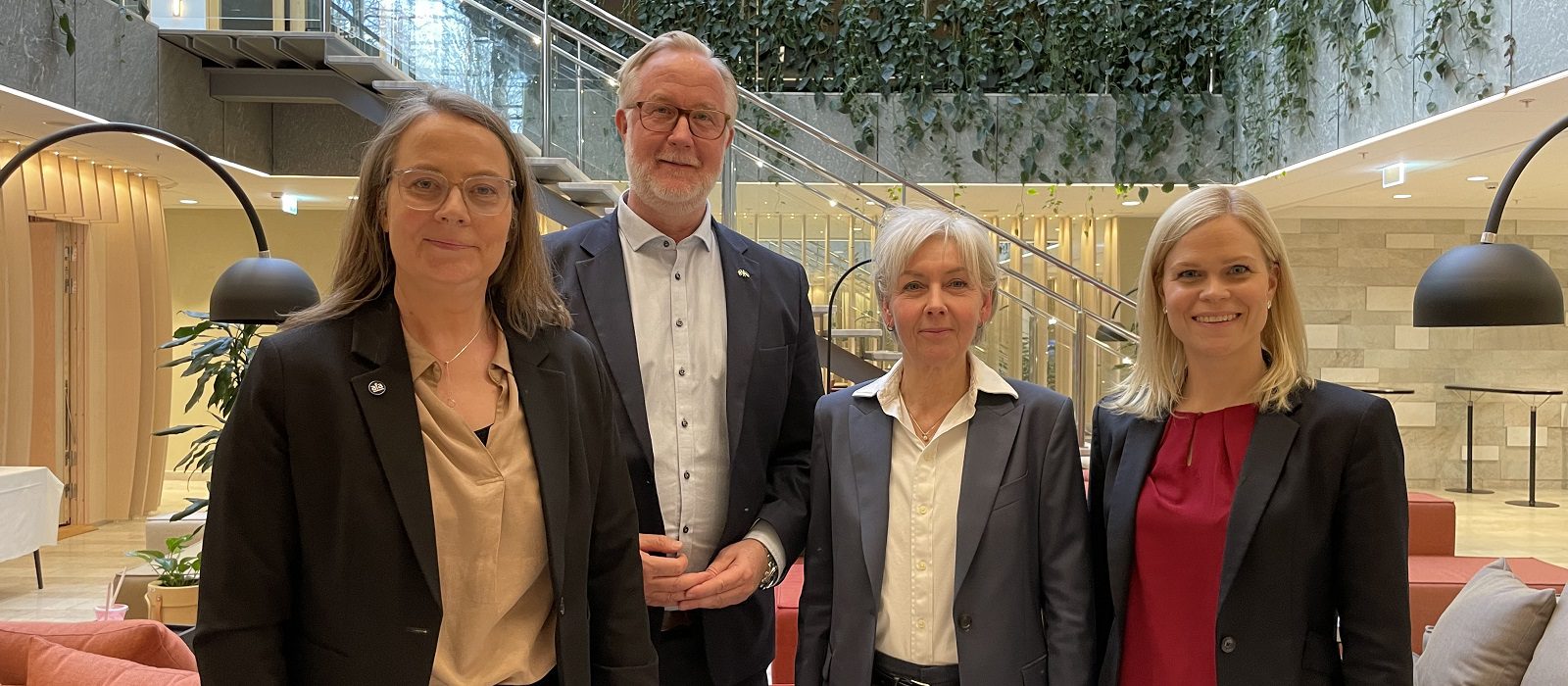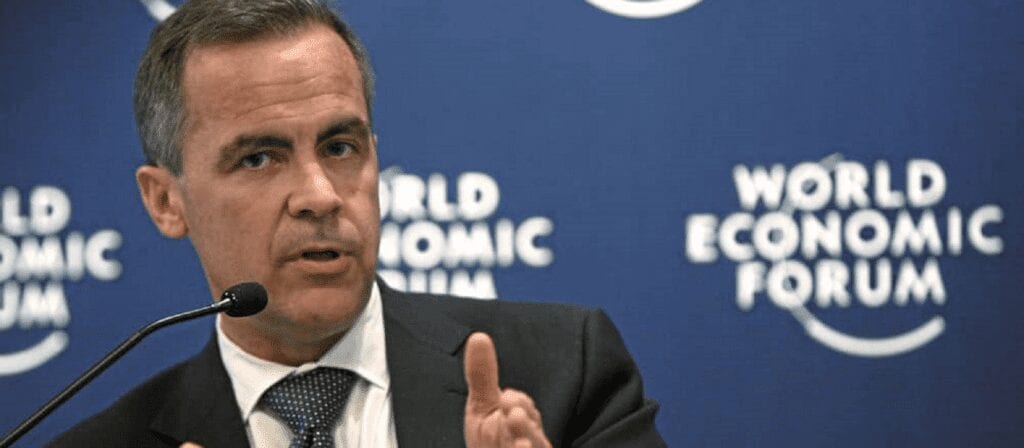Over the past year, 22 leading insurers and reinsurers have collaborated under the auspices of UN Environment Programme’s Principles for Sustainable Insurance Initiative (PSI) to pilot state-of-the-art approaches—particularly the use of climate change scenarios—to better assess climate-related physical, transition and litigation risks in the insurance business.
Four ICMIF members were part of this pioneering collaborative effort: The Co-operators and Desjardins (both Canada), Länsförsäkringar Sak (Sweden); and ICMIF Supporting Member, Swiss Re (Switzerland).
The final report, Insuring the climate transition: Enhancing the insurance industry’s assessment of climate change futures, captures the key findings of the largest collaborative effort by insurers—representing over 10% of world premium volume and USD 6 trillion in assets under management—to pilot some of the most challenging recommendations of the Financial Stability Board’s Task Force on Climate-related Financial Disclosures (TCFD). The overall aim of the PSI pilot project is to contribute to the development of consistent and transparent analytical approaches that can be used to identify, assess and disclose climate change-related risks and opportunities in insurance underwriting portfolios in a forward-looking, scenario-based manner.
The insurance industry is one of the largest global industries with more than USD 6 trillion in world premium volume and USD 36 trillion in assets under management. As such, insurers hold a significant portion of global economic assets and liabilities on their balance sheets. As risk managers, insurers and investors, the insurance industry can play a leadership role in building climate-resilient communities and in accelerating the transition to a net-zero emissions economy.
In his foreword for the PSI report, Mark Carney, the UN Special Envoy on Climate Action & Finance and the UK Prime Minister’s Finance Adviser for the 2021 UN Climate Change Conference (COP26), says: “This is the type of effort needed for insurers to address climate risks more efficiently, to be at the forefront of risk management, and to drive greater climate action by the wider insurance industry, its policyholders, and its stakeholders. Amid a changing climate, insurers are developing innovative ways to protect vulnerable communities, to safeguard natural ecosystems that build resilience and store carbon, and to align their business activities with the Paris Agreement. More and more leading insurers are transitioning their investment portfolios to net-zero emissions, and it is time for a similar effort in their underwriting portfolios.”
Potential climate change-related risks and opportunities that insurers could face can be classified into three categories:
- Physical risks related to changes in weather patterns, temperature and hydrological conditions
- Transition risks towards a net-zero emissions economy and related fundamental changes in, for example, energy, food and transport systems
- Potential litigation risks pertaining to climate change and breach of underlying legal frameworks on both the business and corporate levels
“In order to bring climate risks and resilience into the heart of financial decision-making, climate disclosure (reporting) must become comprehensive; climate risk management must be transformed, and sustainable investing (returns) must go mainstream. This is why this pioneering report by UN Environment Programme’s Principles for Sustainable Insurance Initiative is timely,” according to Carney, who leads the work of the COP26 Private Finance Hub. He is the former Chair of the Financial Stability Board and the former Governor of the Bank of England.
The report’s approach is substantively different from previous TCFD publications focused on the financial sector. First, the report recognises that the insurance industry needs to assess climate change risks in an integrated manner. It is a pioneering initiative covering climate-related physical, transition and litigation risks in one collaborative effort. Second, the report represents a ground-breaking, yet still preliminary, effort to develop methods to assess climate-related litigation risks. Third, the report shows that climate change presents not only downside risks, but also upside opportunities to develop new insurance products or expand existing ones within a changing risk landscape. Finally, all data that were used for the pilot project are publicly available and from reputable resources. This helps make the assessment frameworks developed for the project practical to use for many types of insurance companies around the world.
“Looking at the bigger picture, based on the latest climate science, this decade leading to 2030 represents the most critical period for the world to bend the global emissions curve in order to achieve the aims of the Paris Agreement. At the same time, it is important to cope with adverse climate change impacts that are already being seen and felt worldwide in terms of human tragedy, food and water insecurity, major economic losses, biodiversity loss and ecosystem degradation,” said Butch Bacani, who leads the PSI at the UN Environment Programme (UNEP). “Using both hindsight and foresight, this report represents another concrete step and contribution by the insurance industry towards a risk-aware world and the urgent climate transition needed.”
CEO quotes from the ICMIF member organisations involved
“To protect the financial security of current and future generations, our industry must work together to assess the complex risks posed by climate change. Through these recommendations, we can develop a framework to better assess climate risk as an industry, and enable a smoother transition to a more climate-resilient future.” Rob Wesseling, President & CEO, The Co-operators, and Vice-chair of the ICMIF Board of Directors.
“As a financial cooperative and insurer, Desjardins is committed to addressing the significant impacts of climate change on our society and environment. Our participation in this pilot project contributed to the development of innovative methodologies for the insurance industry, in order to ultimately better protect our members, clients and communities across Canada.”
Guy Cormier, CEO & President, Desjardins Group.
“We entered this global collaboration in order to improve our understanding of climate risk and opportunities and how to contribute to the transition towards a net-zero emissions society. Our next step is to continue this journey more prepared than ever—together we can fight climate change.” Björn Dalemo, CEO, Länsförsäkringar Sak Försäkrings AB.
“The insurance industry is playing a key role as risk managers, insurers and investors in the transition to a net-zero economy. Disclosure of climate-related financial risks and opportunities is just the start. Now we need to accelerate the cross-sectorial actions towards achieving climate resilient economies.” Christian Mumenthaler, Group CEO, Swiss Re.
All 22 insurers and reinsurers that were part of the pilot group (including the four ICMIF members) are all signatories to the UN Principles for Sustainable Insurance: Allianz (Germany), Aviva (UK), AXA (France), Desjardins (Canada), Generali (Italy), IAG (Australia), ICEA LION (Kenya), Intact (Canada), Länsförsäkringar Sak (Sweden), Lloyds Banking Group (UK), MAPFRE (Spain), MS&AD (Japan), Munich Re (Germany), NN (The Netherlands), QBE (Australia), Sompo Japan (Japan), Storebrand (Norway), Swiss Re (Switzerland), TD Insurance (Canada), The Co-operators (Canada), Tokio Marine (Japan), and Zurich (Switzerland). Project contributors include PwC, which advised and reviewed the project, and the Sabin Center for Climate Change Law at Columbia University, which supported the work on climate-related litigation risks. The project also benefitted from the work on litigation risks by the Bank of England’s Prudential Regulation Authority.
In the final part of his foreword, Carney states: “By insuring and investing with foresight, the insurance industry has the opportunity to break the ‘Tragedy of the Horizon’. And in doing so, the industry can seize the unprecedented ‘Opportunity on the Horizon’—to insure the transition to a resilient net-zero world—one that is safer, healthier, more inclusive, prosperous and sustainable. In other words, a more sustainable and insurable world.
“To ensure a sustainable recovery from the COVID-19 pandemic, we must speed up and scale up climate action and ambition towards COP26 and beyond. As society’s early warning system, the insurance industry has the unique opportunity to become its global navigation system—an industry that will help society manage the risks of today, navigate the risk landscape of tomorrow, and reap the opportunities along the way,” concludes Carney.
Report
Download the final report on the PSI’s project to pilot the TCFD recommendations: “Insuring the climate transition: Enhancing the insurance industry’s assessment of climate change futures”
About UN Environment Programme’s Principles for Sustainable Insurance Initiative
Endorsed by the UN Secretary-General and insurance industry CEOs, the Principles for Sustainable Insurance (PSI) serve as a global framework for the insurance industry to address environmental, social and governance (ESG) risks and opportunities—and a global initiative to strengthen the insurance industry’s contribution as risk managers, insurers and investors to building resilient, inclusive and sustainable communities and economies on a healthy planet.
Developed by UN Environment Programme’s Finance Initiative, the PSI was launched at the 2012 UN Conference on Sustainable Development (Rio+20) and has led to the largest collaborative initiative between the UN and the insurance industry.






